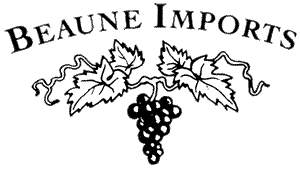2001 marked the dawn of new era at the Château de Puligny-Montrachet. Over the centuries, the picturesque 17th century château has changed hands many times, and its celebrated vineyards have perpetually been the envy of its neighbors. In the 1950s, when poet and winegrower Roland Thevenin owned the estate, it became a gathering place for artists, clergy, and politicians alike. In the 1980s, the Thevenin family sold to the French bank group, Banque Populaire et Caisse d’Epargne, who renovated the property and tended to produce decent, albeit more commercially styled, wines. When the new Director of the Bank took over in 2001, he hired Étienne de Montille of Volnay to put the Château de Puligny-Montrachet back on the map as one of the great producers of the Côte de Beaune . . . which is exactly what Étienne did. He started the slow conversion of their 19 hectares of vineyards to biodynamic farming practices, a much more rigorous method than even organic farming, to bring more life to the soil, more vigor to the vine and more finesse to the wines. Nowhere have the benefits of his efforts been as evident as in 2003 when a heat-wave crippled Burgundy. Even in the midst of a drought, the plowing had saved the vines and helped them to retain water, giving balance to the wines in spite of the heat.We were therefore delighted when we learned that Étienne and his sister, Alix de Montille, purchased the estate in July 2012. Not only will Étienne be able to see all of his projects come to fruition, but both siblings bring incredible savoir-faire when it comes to transmitting the terroir into the finished wines. In the hands of two of the most respected winegrowers in Burgundy, Château de Puligny-Montrachet is at last realizing its full potential.
The de Montilles are aiming high. They plan on reducing the production of cuvees by 20 percent to give greater focus to the Château’s highly pedigreed line-up. The modern winery built in the 1980s, although not as attractive as many old Burgundy cellars, has proved to be almost perfect for making wine in the minimalist, gravity flow method that both Étienne and Alix prefer. In addition, only indigenous yeasts are used and the wines are lightly fined with egg-whites and bottled unfiltered. The preference is to allow a longer barrel-aging period so that the wines will settle naturally. But for anyone who is already familiar with the de Montille family, there is no strict recipe per se, just incredibly high standards. Every vintage is treated uniquely, and the wines reflect that individualized care.
For more information on the de Montille family, their history and their philosophy, please click here. http://beauneimports.com/retail/producer_detail.php?producer_id=2&from=price_list
For more information, please see: www.chateaudepuligny.com
| 
